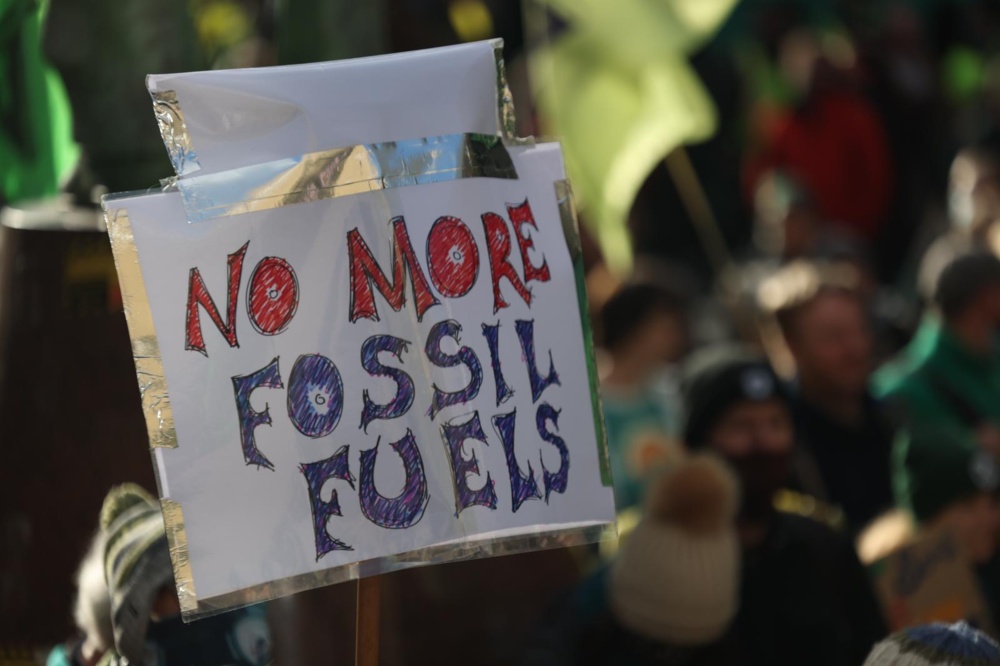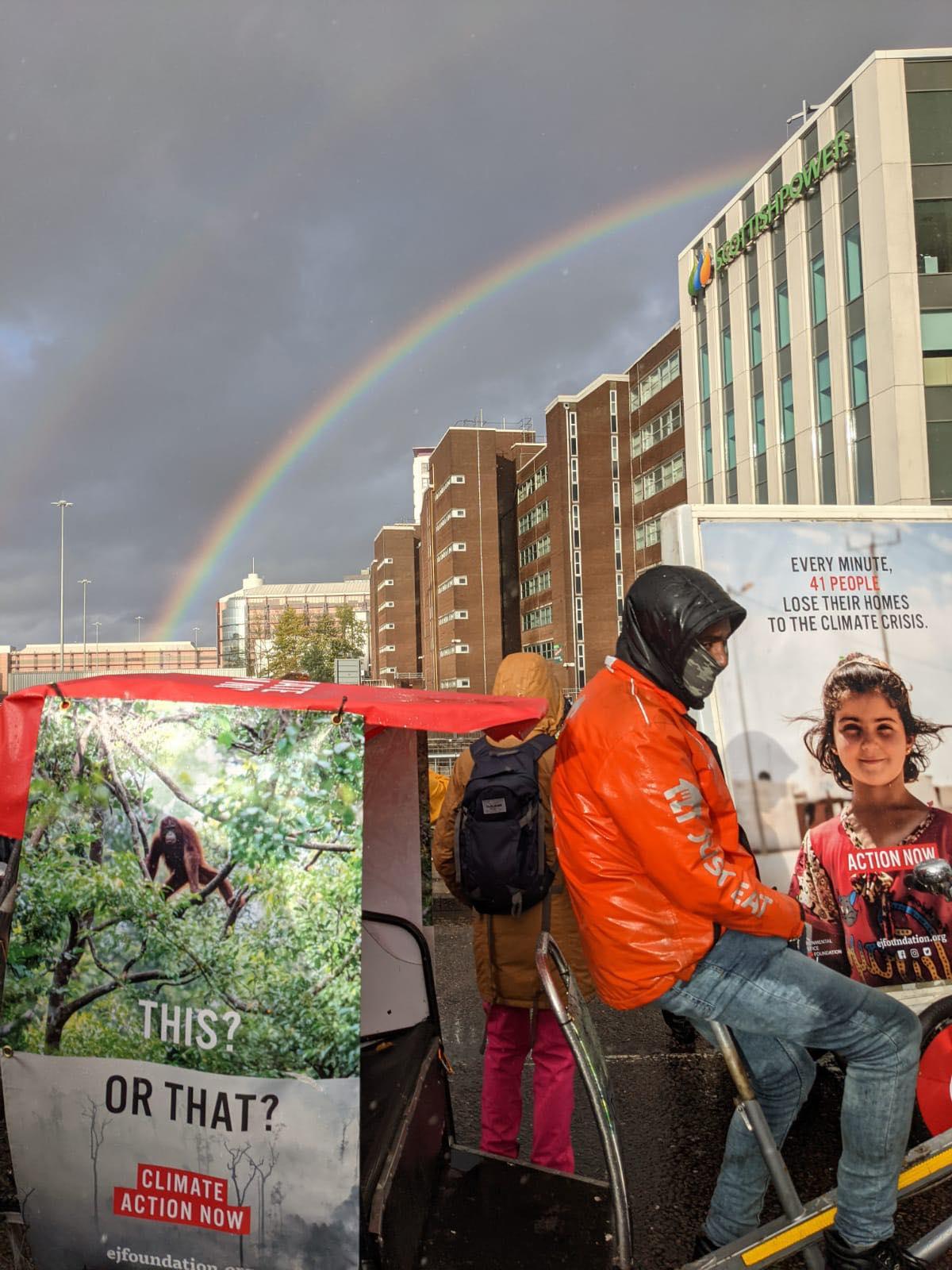
COP26 draft deal is a love letter to the fossil fuel industry
In a a betrayal of people and planet, the draft text of the COP26 deal does not include any mention of a fossil fuel phaseout. In the last few days of the conference negotiators must turn this around and put us on course for a sustainable future.
This week we learned that there were more fossil fuel industry delegates at COP26 than for any single nation. Is it any wonder that the f-words – fossil fuels – are avoided and there is no mention of a fossil fuel phaseout? COP26 is a crucial opportunity to put us on the road to a sustainable fair future. Suffering, hunger and conflict under climate apartheid is what awaits us under business-as-usual. Yet the organisers have welcomed more people representing the short-term greed of a dying industry than those standing up for their fellow citizens?
Negotiators now have just five days to prevent this partisan COP from degenerating into a love-in between the rich nations of the global north and the fossil fuel industry. Rather than the voluntary targets, gaping loopholes, and distant deadlines that we have seen in PR-stunts announced so far, the final text must include transparent, measurable milestones and clear, time-bound targets.
Let us be very clear, unless we wean ourselves off our fossil fuel addiction our collective future is at stake. Without a fossil fuel phaseout, 1.5C is well and truly dead, taking with it countless lives, whole cultures and entire nations.
Governments around the world are still subsidising the fossil fuel industry to the tune of US$ 11 million every minute, over 1.3 billion per day. This must end immediately, with the money directed to supporting the development and scaling-up of renewable energy technologies.
EJF's advice to negotiators now is do not fall prey to the weasel words of those countries in thrall to the fossil fuel industry, such as Saudi Arabia, Australia and Brazil, listen to the experts who have repeatedly stated that we must leave fossil fuels behind, listen to the voices of those who are already on the frontlines of the climate crisis.
We spoke to Tonny Nowshin, a climate activist from Bangladesh, where, as many as one in every seven people will have been forced to leave their homes because of the climate crisis by 2050. She was clear: “This crisis is manmade. There are people who are responsible. There's a certain, small percentage of the world's population responsible for the climate crisis. And we need to start holding them accountable. We need to start holding the oil and coal companies accountable and we need to make them pay reparations for their profit. All this suffering is at the cost of their profit.”
Nations with the greatest responsibility for global greenhouse gas emissions must contribute their fair share and we must all work towards a zero-carbon global economy. We need real action and real solutions, not far off empty pledges and creative accounting.
SIGN UP FOR OUR EMAILS AND STAY UP TO DATE WITH EJF

